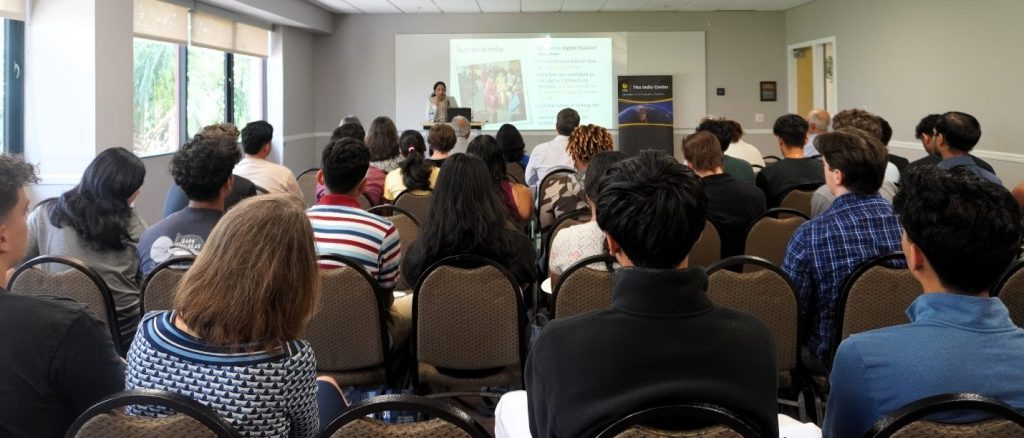FinTech’s Effects on Social Inclusion
By Vihan Yalamanchili

The India Center at UCF hosted Lalitagauri Kulkarni, Ph.D., Fulbright-Nehru Academic and Professional Excellence Fellow at the University of Michigan and Associate Dean of Faculty at the Gokhale Institute of Politics and Economics, for a talk on “FinTech and Financial Inclusion: Myths and Realities” on March 13, 2024. The event was co-sponsored by the Indian Student Association at UCF.
Kulkarni’s lecture focused on the growth and evolution of financial technology, or FinTech, in India and the United States, examining the effects on financial inclusion and societal impact. Kulkarni provided a historical backdrop of FinTech, beginning with ATMs to modern technology such as cryptocurrency and Unified Payment Interface systems, now used widely in India.
Additionally, Kulkarni discussed societal implications and FinTech myths, such as the idea that expanded internet access, mobile phone ownership and digitalization contribute to the empowerment of women, minorities, and the poor. Her research has exposed examples of FinTech failing to increase equality for these groups in India and the United States. Kulkarni cited examples from both countries: for instance, some rural women in India cannot access FinTech due to language barriers, given the many languages spoken in India; in the United States, internet access is often more expensive in rural areas, making it less accessible to poorer people.

Following the presentation, Kulkarni engaged in discussion with the audience, who shared their own experiences and challenges with FinTech. “I am glad that we were able to bring such a knowledgeable speaker to UCF to discuss such a relevant subject,” said Leila Chacko, Director of Public Affairs of the India Center. “We hope the audience gained a better understanding of the complexities of FinTech in India through Dr. Kulkarni’s talk.”
